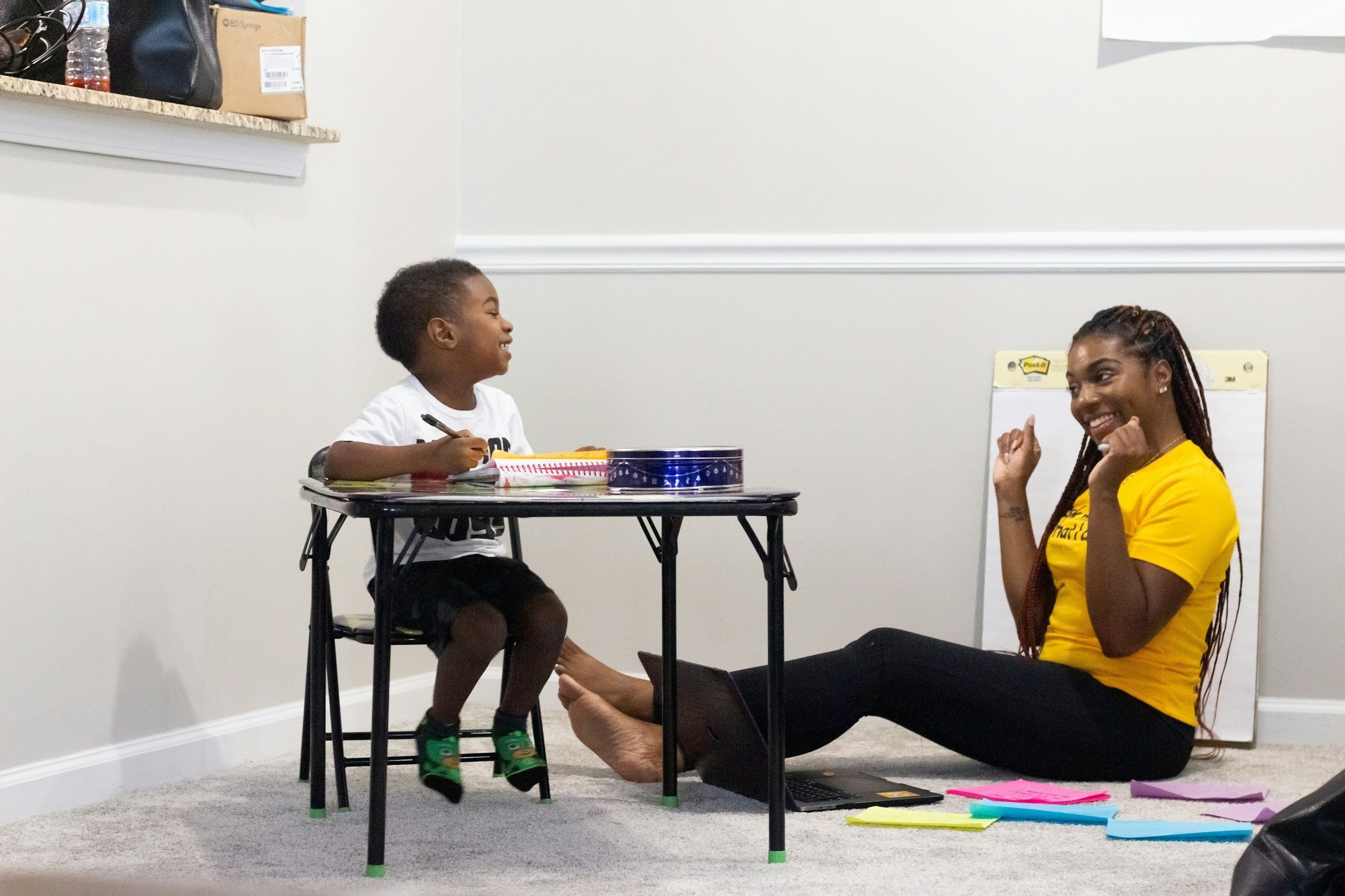Does My Child Need More Speech Therapy?
Natalie Iverson CCC-SLP
A question I get asked often as a pediatric speech therapist in a private practice
(and fellow parent) is whether a child would benefit from both school speech therapy
and private speech therapy. There are a variety of factors to consider when making this
decision.
First, let’s talk about the basic process of school-based services. Typically, a child
is first referred for services either by their general education teacher, the special
education teacher, or the child’s parent. If the child is already receiving services at a
private practice or in another outpatient setting (like a hospital), they may be able to skip
over the earliest interventions provided at school and go straight into an evaluation.
Otherwise, children are often provided with in-class accommodations to determine if
those measures can assist the child’s progress before receiving full services with the
school’s professionals. If those initial interventions are deemed not enough for progress,
then an evaluation is conducted to create an Individualized Education Plan. In this plan
(an IEP), the types, amount, and specifications of services are determined. Goals are
created, the number of minutes per month are determined, and specifications such as
whether your child will be seen in the classroom vs pulled out of the classroom or
individually vs in a group are also laid out. IEPs are required to be updated annually,
though parents can request a meeting at any point in the year to discuss changes.
With the above information, you can ask yourself the following questions: Is your
child already receiving school-based services? Are they receiving any other services in
school (i.e., reading intervention, special education, occupational therapy, physical
therapy, etc.)? Are they already receiving private services? How much therapy, how
often, and with what specifications is your child receiving school services vs private
services? The answers to these questions may help you decide if your child’s current
level of services is meeting your expectations and allowing for optimal progress. Please
consult your child’s current speech therapist(s) to determine progress rather than just
observation. This will allow you to gauge the smaller wins and your child’s over-all
trajectory rather than just the easier-to-see wins. You may also ask yourself, how much
interaction do you want with your child’s therapist. It is likely that you will get more
feedback regarding individual sessions when seeing a private speech therapist as
compared to a school therapist, just by the nature of the setting.
Consider the type(s) and number of goals your child is targeting in speech
therapy. Does your child receive speech therapy in a variety of different areas
(articulation, language, stuttering, social skills, literacy, etc.) or do they only have one
area of focus for their goals? Certain disorder types warrant more therapy than others,
as well. For example, a child with 1-2 sounds in error in their speech may not need as
much therapy to achieve their goals as compared to a child with a motor-planning
disorder such as Childhood Apraxia of Speech. Comparably, your child may benefit
from specialized services with a speech-therapist trained more thoroughly in a certain
area. This therapist could be your child’s school therapist just as easily as an outpatient
(private or hospital) therapist. Consult with a speech therapist to decide what is most
appropriate based on your child’s individual needs.
There are personal situations to consider, as well. As much as we want to help
our children, we want to avoid their burnout (and ours as parents.) Financials
surrounding services are likely to play a role in this. Do the private practices in your area
accept your insurance? If they don’t and grants are not an option, ask about private pay
costs to decide whether this is a viable option for you and your family. School-based
services are free for families whether a child is attending school publicly, at a charter
school, or being homeschooled.
Extra appointments during the day and after school can be overwhelming, too.
The busyness of your family plays a big role in the overall well-being of your child. Your
child in need of therapy (or their siblings, if they have any) may be involved in
extracurriculars after school and on weekends. Maybe your child is burnt out after
attending school in general and needs time to wind down during the after-school hours.
The closeness of private facilities near you (and whether they provide teletherapy
services) may also impact your decision to pursue multiple kinds of services. Looking at
the child as a whole is just as important as their involvement in services.
This article is not an extensive list of therapy-based nor personal factors that can
come into play when considering whether school-based services, private services, or
both is the best option for your child. Hopefully, however, it is a good place to start. We
at Ability Innovations are happy to provide consultations to discuss your options further,
as well.





